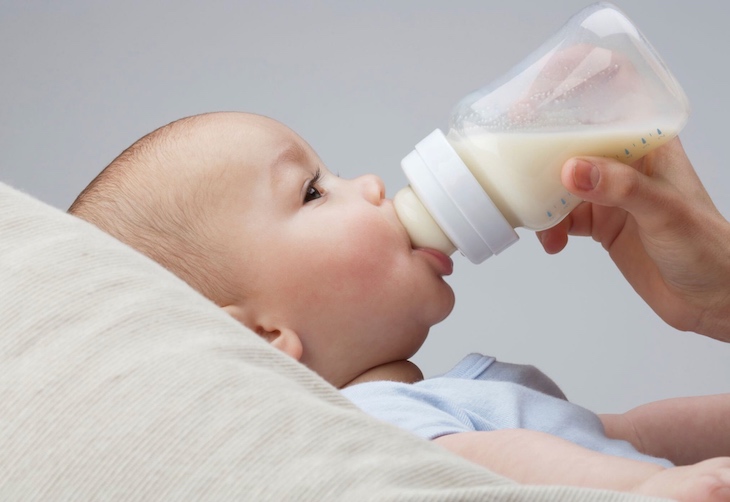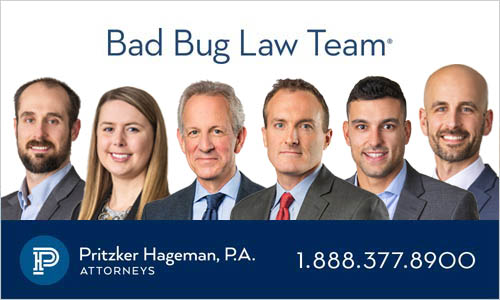What is Cronobacter sakazakii? And why is it a danger in powdered infant formula? This pathogen is not well known but can cause serious illness and death in infants, especially babies who were premature, low birth weight, or have other health conditions or compromised immune systems. It is one of the costliest foodborne pathogens because of loss of life and serious health problems that can persist even when a patient recovers. The fatality rate in infants, even older infants, ranges from 40 to 80%. The cost of each case is estimated at $1,000,000, according to a study published in Front Microbiol.

Despite the severity and high mortality rate of these infections, Cronobacter illnesses are not reportable conditions in the United States except in one state: Minnesota. That means these infections are likely underreported across the country.
What is Cronobacter sakazakii?
Cronobacter sakazakii is an opportunistic pathogen that can survive in extreme conditions. It linked to septicemia, meningitis, and necrotizing enterocolitis, which can all be life-threatening complications. The bacteria can survive for several months even under very low water activity in a food and it can live in foods with a pH under 3.9, which is quite acidic. It also forms biofilms that can protect it from dry conditions and also protect it from disinfectants. The bacteria survives in desiccation, under high heat conditions, and in higher salt conditions as well, up to 10% NaCl. These factors explain why the pathogen survives in powdered milk.
Scientists don’t really understand how this bacteria causes serious illness. The pathogen does infect epithelial cells in the intestine and then travels to the brain to infect microvascular endothelial cells in that organ.
Cronobacter has been isolated from foods as diverse as rice, flour, dairy, herbs, spices, cereals, meat, vegetables, and fruit. The ST4 strains, which are most often connected with meningitis of neonates, are usually isolated from milk powder processing factories and powdered infant formula.
In 2014, the FDA published its final rule that set standards for manufacturing infant formula. This rule required infant formula manufacturers to test for Cronobacter and Salmonella and established controls to prevent adulteration due to equipment, during manufacturing, and facilities. The previous rule on current good manufacturing practice for infant formula was published in 1996.
Infant food manufacturers claim that using current methods, it is “not possible to eliminate all germs from powdered infant formula in the factory,” according to the CDC. Powdered formula is heat treated, but that heat is not high enough to destroy Cronobacter bacteria. And given how tolerant the pathogen is to desiccation and heat, powdered infant formula can present risks.
Four Infants Sickened After Consuming Certain Similac, Alimentum, and EleCare Formulas
As of February 21, 2022, four infants have been sickened with Cronobacter and Salmonella infections after allegedly consuming powdered infant formula manufactured by Abbott Nutrition. Certain lots of Similac, Alimentum, and EleCare have been voluntarily recalled, although some of these products may still be available on store shelves. Parents can check to see if they have the recalled formula by entering the lot number on Abbott’s web site.
The infants live in Minnesota (1), Ohio (1), and Texas (2). One baby has died, although the FDA says that Cronobacter may have contributed to that death. A news report published today indicates that there may be another sick baby who lives in Nevada, but that article does not state if the infant has tested positive for Cronobacter or Salmonella and there is no official confirmation of this illness.
Symptoms of Cronobacter Infection
Symptoms of a Cronobacter infection in infants range from mild to severe, depending on if the illness has progressed to sepsis or meningitis. In babies under the age of two months, this infection usually starts with a fever, poor feeding, crying, and very low energy. Some babies may also have seizures. Any infant who is being fed powdered formula should be taken to a doctor as soon as possible if these symptoms develop.
If sepsis or meningitis develops, symptoms will include poor feeding, irritability, temperature changes, jaundice, grunting breaths, and abnormal movements. These symptoms constitute a medical emergency and the baby should see a doctor immediately.
How to Prepare Powdered Infant Formula
Safely preparing powdered infant formula requires precise steps. It’s important to check with your doctor about preparation methods that are best for your child. It should be noted that breast milk is best, but some women cannot breast feed their babies for various reasons.
First, wash your hands and everything in the area where the formula will be prepared. Then the water used to rehydrate the powder must be boiled – for one minute, according to some sources, and for two minutes, according to others. The water should be cooled – for 30 minutes, according to some, or until it’s room temperature, according to other experts. The water temperature can affect nutrients in the formula, so considerations for your baby must be taken into account when parameters are set.
All bottles and nipples should be sterilized before the first use. Some experts say they should be sterilized for the first three months of your baby’s life. No reconstituted formula should be stored longer than 24 hours, and it should always be stored in the refrigerator.

If your infant has been sickened with a Cronobacter or Salmonella infection after feeding him or her powdered infant formula, please contact our experienced attorneys for help at 1-888-377-8900 or text us at 612-261-0856. Our firm represents clients in lawsuits against grocery stores and food processors, and families in wrongful death cases.




